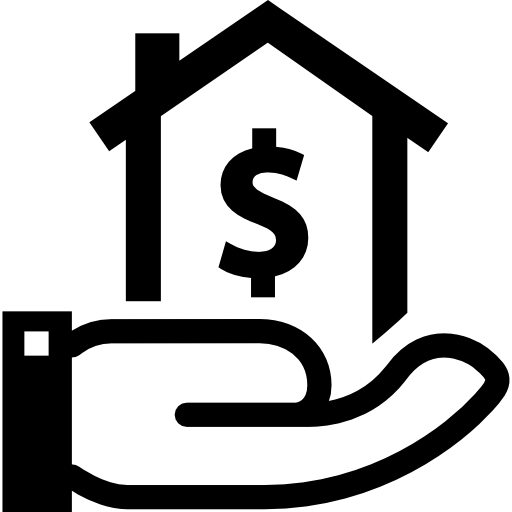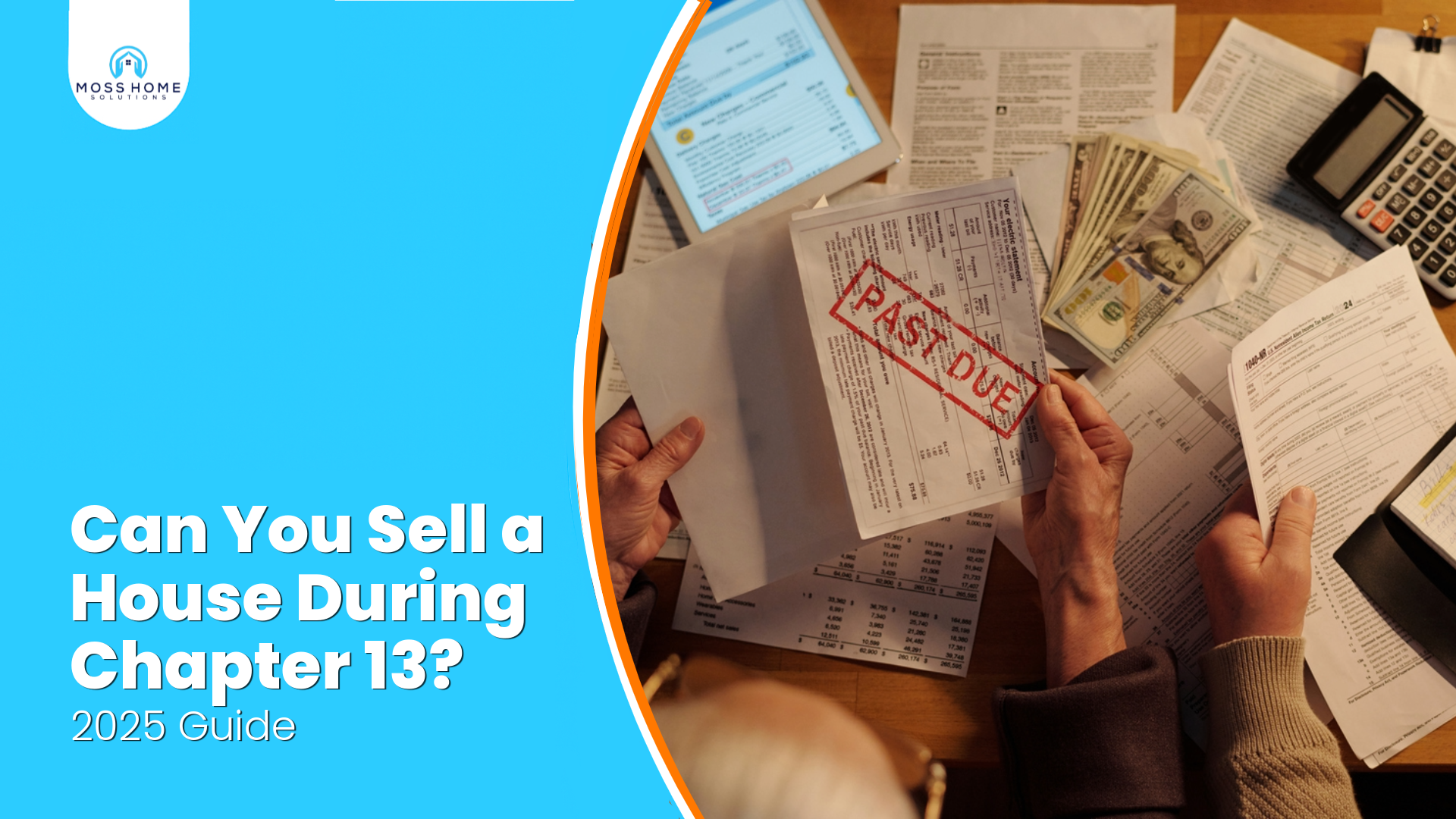Chapter 13 bankruptcy is a reorganization plan that allows individuals with regular income to repay some or all of their debts over time, usually 3 to 5 years. Unlike Chapter 7 (which may involve liquidating assets), Chapter 13 allows you to keep your property as long as you continue to meet your repayment obligations.
But life happens. Your financial situation might shift after filing, making homeownership no longer sustainable. If selling your house becomes necessary, the bankruptcy code allows for it, but under court supervision.
Key Summary
Yes, you can sell a house during Chapter 13 bankruptcy, but you need court and trustee approval.
You’ll need to file a motion to sell and work with your bankruptcy attorney.
Proceeds from the sale may go toward paying off creditors.
Selling to a cash buyer like Moss Home Solutions can simplify the process by avoiding repairs and offering flexible terms.
Can You Sell a House During Chapter 13 Bankruptcy?
Yes, you can, but not without going through legal protocols. All home sales while in bankruptcy must be reviewed and approved by your court-appointed trustee and the bankruptcy judge. This is to ensure that the sale aligns with your existing repayment plan and does not unfairly impact your creditors.
Step-by-Step: How to Sell a House During Chapter 13 Bankruptcy
1. Start With Legal Guidance
The first and most important step is to speak with your bankruptcy attorney. They’ll assess whether a home sale fits your situation and help you stay in compliance with your bankruptcy case. Selling without approval could result in your case being dismissed or your discharge denied.
2. File a Motion to Sell With the Court
To proceed, your attorney will submit a Motion to Sell Real Property to the court. This motion typically includes:
A recent appraisal or comparative market analysis
A signed purchase contract or offer letter
A breakdown of the estimated closing costs
Details on how the proceeds will be used to pay down creditors
Your creditors and trustee are then notified and have the right to object, though most motions are approved when filed properly. As outlined by the National Consumer Law Center, transparency and timely disclosure are essential to prevent delays.
3. Analyze the Equity Position of Your Home
Your home’s equity, the difference between the market value and outstanding mortgage/lien balance, plays a big role in the court’s decision.
If your home has positive equity, the excess funds will usually be directed toward your Chapter 13 repayment plan.
If your home is underwater (you owe more than it’s worth), your attorney may help you pursue a short sale, which also requires court and lender approval.
Keep in mind that bankruptcy courts prioritize fair market value, so you’ll need to document that your offer is competitive.
Why Work With a Cash Buyer During Chapter 13?
Homeowners in Chapter 13 often face strict timelines, court-mandated deadlines, and emotional stress. Traditional buyers typically request inspections, appraisals, and lender contingencies—which can complicate an already delicate legal process.
Cash buyers, especially those experienced in bankruptcy sales like Moss Home Solutions, offer a streamlined alternative:
We purchase homes as-is – you don’t have to spend money on repairs or showings.
No realtor commissions – you keep more of the proceeds.
We coordinate with your legal team – ensuring that sale paperwork aligns with bankruptcy court requirements.
We close on your timeline – giving you the flexibility to wait for court approval and exit on your terms.
Realistic Benefits of Selling During Chapter 13
Selling isn’t just about eliminating debt—it can also help protect your credit, relieve stress, and allow you to transition to more manageable housing. The U.S. Department of Housing and Urban Development (HUD) notes that selling before falling behind—or before foreclosure proceedings begin—is one of the most effective ways to avoid long-term damage to your financial future.
Here’s what many of our clients gain:
Freedom from an unaffordable mortgage
The ability to reset and rent affordably
Relief from property taxes, upkeep, and utility bills
Potential to modify your repayment plan after selling
Frequently Asked Questions
1. Do I need permission to sell my home during Chapter 13?
Yes. The bankruptcy trustee and court must approve all sales of significant assets like real estate. Failing to get approval could jeopardize your case.
2. Can I keep some of the profit from the sale?
Possibly. If the sale proceeds exceed your debt obligations and costs, you may be entitled to retain some funds. Your attorney must request this in your motion, and it’s up to the court’s discretion.
3. What happens if my house is underwater?
If you owe more than the house is worth, your attorney may request approval for a short sale, which requires both lender and court sign-off. According to NOLO’s bankruptcy guide, short sales can be a viable solution, but timing and documentation are critical.
4. Can I sell to a family member or friend?
Yes, but courts closely examine sales to insiders. You’ll need to show a third-party valuation and prove the deal reflects fair market value, not a “gift” or preferential treatment.
Final Thoughts
Selling your house while in Chapter 13 bankruptcy isn’t just allowed, it’s often a smart financial move. With court approval, the right legal support, and a flexible cash buyer, you can move forward without added stress or delay.
At Moss Home Solutions, we’ve helped dozens of homeowners navigate the unique challenges of selling during bankruptcy. Let us get you the sale you deserve. Get in touch with us today for a free, no-obligation cash offer.






